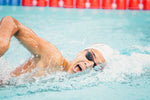
How to Stay Energised During Long Swims
, by Sandesh Prasannakumar, 7 min reading time
Stay tuned, Your Favourite supplements will be back in stock soon!
Stay tuned, Your Favourite supplements will be back in stock soon!
Stay tuned, Your Favourite supplements will be back in stock soon!
Stay tuned, Your Favourite supplements will be back in stock soon!
Stay tuned, Your Favourite supplements will be back in stock soon!
Stay tuned, Your Favourite supplements will be back in stock soon!
Stay tuned, Your Favourite supplements will be back in stock soon!
Stay tuned, Your Favourite supplements will be back in stock soon!
Stay tuned, Your Favourite supplements will be back in stock soon!
Stay tuned, Your Favourite supplements will be back in stock soon!

, by Sandesh Prasannakumar, 7 min reading time
Thus, it would be possible to point out that for competitive and endurance swimmers, it is very important to possess the ability to sustain energy during long swimming practices. But even the leisurely swimmers who do workout swims for extended periods can be on the brink of an energy wall, which makes finishing the workout or race tiresome. Choosing the proper fueling and hydration pattern before, during, and after endurance swims can leave you feeling pumped. Lastly, it is useful to apply a few mental and posing methods to prevent a situation when the energy diminishes during the workout.
In preparation for swimming, ensure you have taken the right foods to fuel your body and boost energy properly.
The meals that are taken before the long swim, especially in the hours and the day before, have a very big influence on the endurance that one has while swimming. Be sure to fuel up properly beforehand:
Even in a long swim that lasts one hour and beyond, you must keep refuelling energy stores. Use these intra-swim fueling tips:
How you swim during a long-distance session can determine how much of your energy banks you save. Be strategic:
When physical energy starts to lag, using some mental strategies severely can give an energy boost to keep powering through:
The effects of swimmers after a tiring long swim session determine the feelings of the swimmer before the subsequent training session. Follow these recovery tips:
It is a tremendous effort to maintain the energy high throughout the long swim sessions, demanding proper preparation, adequate nutrition, and mental toughness. These are some tips above that can be put into practice to sustain the drive to get to the end.
For all your protein and supplement needs, visit Genetic Nutrition!
In the meal before a long swim, you should eat foods containing carbohydrates that will supply muscles with a steady stream of energy, as well as lean protein and healthy fats. Before swimming, you should eat eggs, oatmeal, chicken, beans, quinoa, nuts and fruits. Also, you should drink 16-20 oz water in the hours before each meal to keep yourself hydrated.
2. What should one consume while swimming long?For endurance swimming that takes a duration of more than 60 minutes, then it is recommended that one should take a sports drink every 15-20 minutes and in a quantity of100 ml.
3. How many times a day should one eat in case of a very long swim?For a long duration of swimming, one should aim to take about 30-60 grams of carbohydrates per hour. This can be through sports drinks and other portable foods consumed in the water, for instance, bananas, energy chews/gels, granola bars, and peanut butter sandwiches. It helps one avoid getting to a situation whereby they run out of energy due to long intervals between meals or snacks.
4. What are the best tips when it comes to the post-swim recovery?Key recovery necessities involve four aspects: the first is to replenish water loss, perhaps through drinks after the swim; the second is the consumption of carbohydrates and proteins within 30-60 minutes of the exercise to replace the muscle glycogen; and the fourth is the use of compression garments for muscles, massage, and ice baths for muscles to bounce back faster from the long demanding swim.